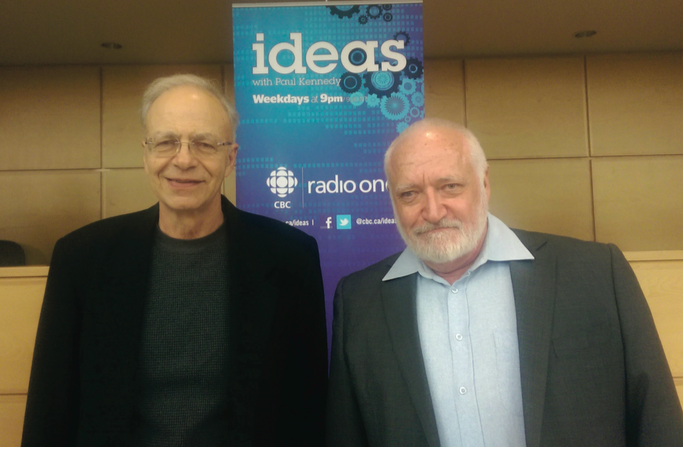On Nov. 14, philosopher Peter Singer argued for the legalization of assisted dying.
Singer spoke at Dalhousie’s Schulich School of Law for the inaugural lecture of the Sir Graham Day Ethics, Morality and Law Lectures series.
Despite bad weather, at least 200 people attended the public lecture. The main auditorium was full and many people stood or sat on the floor.
“It’s particularly significant to be here, I think, in Canada, talking about this topic at a time when the whole nation is making important decisions in this area,” said Singer.
“This is a bigger part of a broader ethical shift in our thinking about life and death. Canada is really the next country at the crux of this issue.”
The Supreme Court of Canada decided previously that existing laws against assisted suicide are not in violation of the rights laid out by the Charter of Rights and Freedoms.
However, in 2012’s Carter v. Canada case, the B.C. Supreme Court ruled that the laws were unconstitutional and permitted Gloria Taylor, through constitutional exception, to have the option of physician-assisted death.
On Oct. 15 2014, the Supreme Court of Canada heard the case, but has not yet made a decision.
Quebec has recently passed right-to-die legislation. The federal government can challenge it, and have insisted they have no intention of changing existing laws.
In his lecture, Singer spoke about the influence of Christian morality and the sanctity of human life on modern law.
Technology, he said, has enabled people to live when they would have died historically, and changed the way society defines life and death.
“That began a movement from questions about the sanctity of life to questions about the quality of life. And the question is if there is a minimal quality that somebody has to have for their lives to be worth preserving.”
Singer said that individuals determine what their minimal standards of quality of life are, and when these are not met, the individual should have the freedom to choose to live or die.
Personal autonomy and choice were key points. Singer argued that the government should not interfere with the individual’s freedom, unless it harms other people. Preventing the individual from the choice of dying is not justifiable, he said.
“I think that’s a powerful principle in a liberal state. A state which sees limits on what government ought to be doing,” said Singer. “I think over the years we’ve come to see it not as an absolute principle. So there are cases where the state may be justified in interfering with the individual.”
A major criticism of right-to-die legislation is that it puts vulnerable people in danger of making the decision to die in only temporarily distressed states of mind.
Singer said there was no evidence to prove this. Right-to-die legislation is very strict, but varies across countries. Generally, to be eligible, the condition must be incurable and unacceptable for the patient. They must consult a second physician to confirm the decision.
Singer is best known for his books Animal Liberation and Practical Ethics. He is currently the Ira W. DeCamp Professor of Bioethics at Princeton University.


Recent Comments